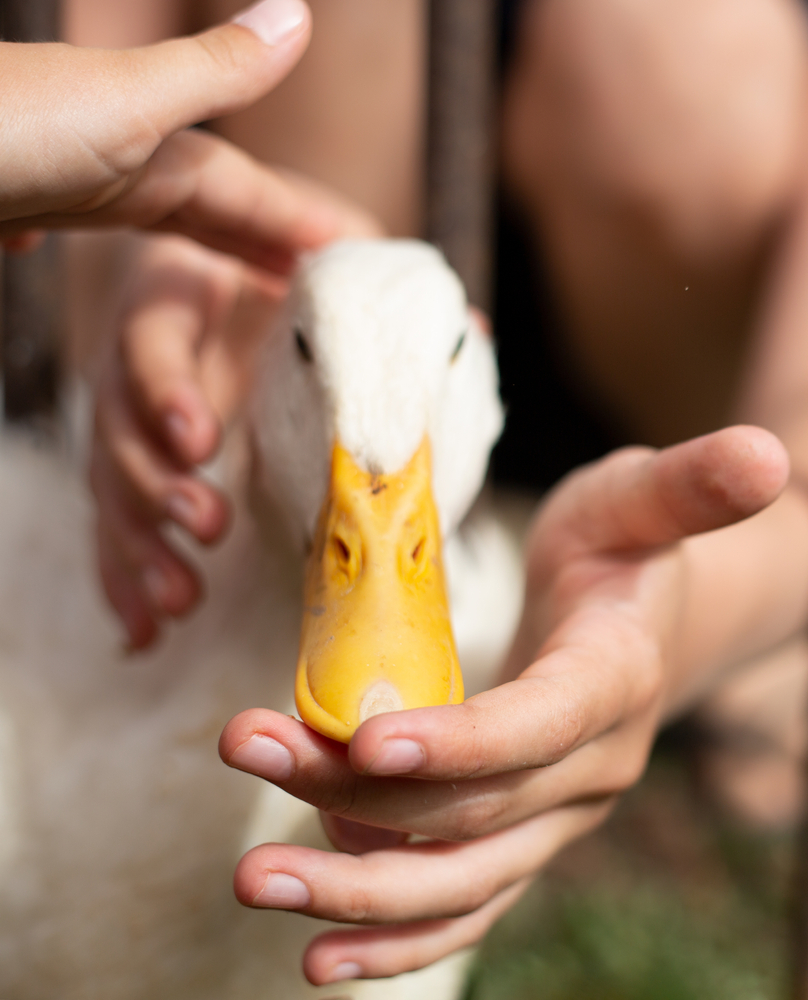Ducks are one of the most popular and beloved birds in the world.
From Daffy Duck, to Donald Duck, they’re one of the world’s most celebrated creatures.
With their cute quacks, soft feathers, and playful personalities, it’s no wonder that many people consider them as pets. However, one question that often comes up:
Are ducks friendly?
The answer is not straightforward. Ducks, like all animals, have unique personalities and temperaments. Some ducks are more friendly and social than others, while some may be more reserved or even aggressive. However, in general, ducks are considered to be friendly animals.
Social Nature
Ducks are social creatures that enjoy spending time with their flock and humans. They can be quite affectionate and are known to follow their owners around, wagging their tails and even nuzzling them for attention.
One of the reasons why ducks are friendly animals is that they are highly social creatures. They naturally form close bonds with their flock, and they are known to be very loyal to their fellow ducks. They enjoy being around other ducks, and they often play and swim together in groups.
Temperament
Ducks are very curious animals, and they enjoy exploring their surroundings. They love to investigate new objects and environments and are known to be quite adventurous. This gives them a very engaging and playful temperament, as they enjoy interacting with their owners and discovering new things.
Caring for Ducks
Another reason why ducks are friendly animals is that they are generally easy to care for. They don’t require as much attention as some other pets, and they are generally low maintenance. They can also be trained to follow simple commands and learn basic tricks, which can make them very engaging and interactive pets.
Things to Be Aware of
It’s important to remember that ducks are not all the same, and their personalities can vary greatly depending on their breed, environment, and individual temperament. Some breeds of ducks, such as Muscovy ducks, are known to be more independent and less social than other breeds.
Also be wary of ducks that are raised in isolation or without proper socialization – they may be more skittish or aggressive than those that are raised in a more social environment.
Differences Between Age Groups
Another factor that can affect a duck’s temperament is its age. Young ducks, also known as ducklings, are typically more social and friendly than adult ducks. They enjoy spending time with their owners and are known to be very playful and curious. However, as they mature, their personalities may change, and they may become more independent or reserved.
Impact of Owners
The way that ducks are treated by their owners can also affect their temperament. Ducks that are raised with love and affection are more likely to be friendly and social than those that are mistreated or neglected. It’s important to treat ducks with kindness and respect, as they are sensitive animals that can become stressed or anxious if they are not cared for properly.
Considering owning a duck?
Despite their generally friendly nature, it’s important to remember that ducks are still animals, and they can be unpredictable at times. They have a natural instinct to protect themselves and their flock, and they may become aggressive if they feel threatened or scared.
Note with wild ducks: It’s important to approach ducks with caution, especially if you are not familiar with them.
Overall, science tells us ducks are generally friendly animals. My personal experience is that ducks are great pets for those who are willing to provide them with the care and attention that they need.
In my experience with ducks, I’ve learned that their temperament can be affected by their breed, environment, and individual personality. It’s crucial to approach ducks with kindness and respect and provide them with a secure and comfortable living environment.



